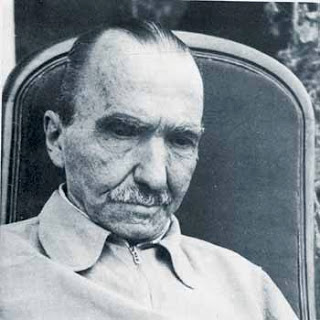Also known as:
Νίκος Καζαντζάκης
More People of Greece
More Topic Categories
Related Destinations
Nikos Kazantzakis (18/02/1883 - 26/10/1957)
 Nikos Kazantzakis was a Greek author, poet and theatrical playwright. He is considered one of the most important Modern Greek authors and the one with the most translated work.
Nikos Kazantzakis was a Greek author, poet and theatrical playwright. He is considered one of the most important Modern Greek authors and the one with the most translated work.He was born in Heraklion in 1883, while it was still under Ottoman occupation. He finished his secondary education there and moved to Athens in 1902, where he enrolled at Law School of University of Athens. He published his first novel in 1906. The following year, he went to Paris in order to further his studies on a Master’s level. In 1910, after having published his PhD, he settled in Athens and one year later, married Galateia Alexiou. During the First Balkan War, he volunteered and was placed at the office of Prime Minister Eleftherios Venizelos, while he also led the movement to found the Educational Group, and met poet Aggelos Sikelianos. During this period, he was also introduced to the works of Dante Alighieri, whom, along with Homer and Bergson, he considered his teacher.
In 1919, Venizelos appointed him Secretary General of the Ministry of Welfare, aiming at the repatriation of Greeks from Caucasus; the experience he gained was the basis for his novel Christ Recrucified. He then travelled to Europe, specifically Vienna and various places in Germany and Italy, and got acquainted with the work of Freud and Buddhist scriptures. He also visited the USSR, Palestine, Cyprus and Spain. He divorced his wife and was romantically involved with Heleni Samiou, whom she married 21 years later. In 1924, he was arrested with the charge of leading a communist organization. In 1927, he isolated himself to Aegina in order to complete his work Odyssey; meanwhile he started working on an anthology of his travel log, as well as his philosophical work Ascetics. Having visited the USSR quite a few times, he spoke fondly of the Russian Revolution and even delivered speeches; he was initially arrested but the trial never took place. Another trial was set in 1930, charged with atheism, but it also never happened.
He later traveled to Spain, Japan, and China, and he also completed his work Odyssey, which he worked on for thirteen years. After World War II, returning to Greece, he actively participated in politics. He was also nominated for the Nobel Prize in Literature three times. In 1948, he settled in France, and completed the majority of his works there. In 1953, he got an eye infection which eventually cost him his sight from his right eye. Returning to Greece, he was heavily criticized by the Greek Orthodox Church for being sacrilegious, based on the books Captain Michalis (Freedom and Death, in English) and The Last Temptation of Christ; in fact, the latter book was recorded in the now repealed Index Librorum Prohibitorum of the Catholic Church, including books that were prohibited. Despite the threats by the Orthodox Church, Kazantzakis was not excommunicated.
His book “Zorba the Greek” received the Best Foreign Book award in Paris in 1954 and was the base for the homonymous movie. Kazantzakis later traveled to China, but returning, he was diagnosed with leukemia; he was admitted to hospitals in Copenhagen and Freiburg, where he died in 1957 and was buried in Heraklion. The Orthodox Church refused to bury him in an Orthodox cemetery. On his tombstone, after his wish, there is an inscription: I have no hope, I have no fear, I am free.
See Also:
 Athens Photos
Athens Photos
 Santorini Photos
Santorini Photos
 Crete Photos
Crete Photos
 Meteora Photos
Meteora Photos
 Corfu Photos
Corfu Photos




